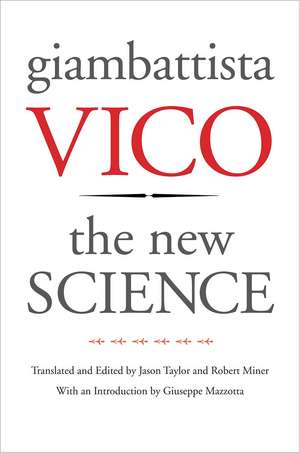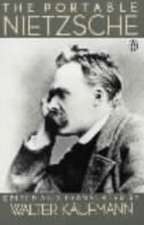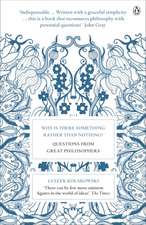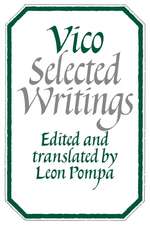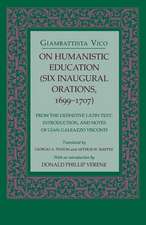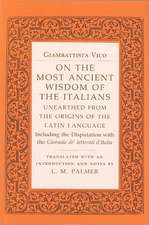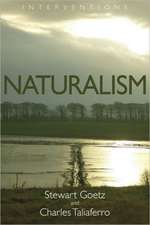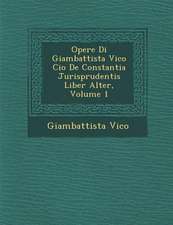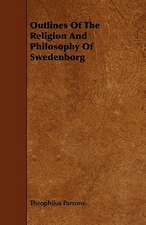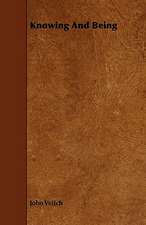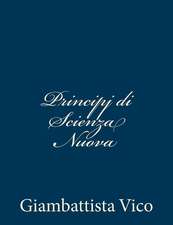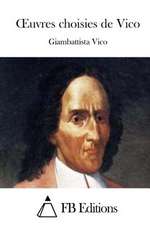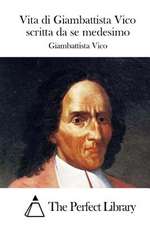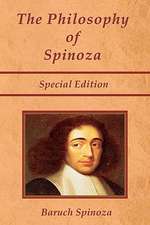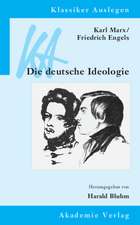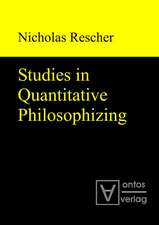The New Science
Autor Giambattista Vico Traducere de Jason Taylor, Robert C. Miner Introducere de Giuseppe Mazzottaen Limba Engleză Paperback – 7 ian 2020
The New Science is the major work of Italian philosopher Giambattista Vico. First published in 1725 and revised in 1730 and 1744, it calls for a reinterpretation of human civilization by tracing the stages of historical development shared by all societies. Almost unknown during his lifetime, the work had a profound influence on later thinkers, from Montesquieu and Marx to Joyce and Gadamer. This edition offers a fresh translation and detailed annotations which enable the reader to track Vico’s multiple allusions to other texts. The introduction situates the work firmly within a contemporary context and newly establishes Vico as a thinker of modernity.
| Toate formatele și edițiile | Preț | Express |
|---|---|---|
| Paperback (2) | 71.04 lei 24-30 zile | +28.03 lei 4-10 zile |
| Penguin Books – 28 apr 1999 | 71.04 lei 24-30 zile | +28.03 lei 4-10 zile |
| Yale University Press – 7 ian 2020 | 157.90 lei 3-5 săpt. | +26.13 lei 4-10 zile |
Preț: 157.90 lei
Nou
30.21€ • 31.63$ • 25.15£
Carte disponibilă
Livrare economică 10-24 martie
Livrare express 21-27 februarie pentru 36.12 lei
Specificații
ISBN-10: 0300191138
Pagini: 480
Dimensiuni: 157 x 233 x 24 mm
Greutate: 0.68 kg
Editura: Yale University Press
Colecția Yale University Press
Recenzii
“The footnotes acquaint the Anglophone reader with perhaps the very best of contemporary Vico scholars.”—Nancy Struever, Johns Hopkins University
"This third translation of the main work of Italian philosophy into English presents important advantages with regard to the earlier ones. It is philologically faithful, philosophically competent, and eminently readable."—Vittorio Hosle, author of Vico’s New Science of the Intersubjective World
"Finally, the barrier posed by Vico’s formidably difficult baroque prose is overcome. He can now be understood and recognized as indispensably key to the perennial future of the humanities."—William Franke, author of The Revelation of Imagination
"This translation is agilely faithful to Vico’s idiosyncratic prose; and while prior translations provide scant resources to aid the reader, this one contains copious annotations as well as a magisterial introduction."—Stuart D. Warner, Roosevelt University
Notă biografică
Cuprins
Introduction by Anthony Grafton Translator's Preface
Idea of the Work Explanation of the Frontispiece
Book 1: Establishing Principles
Chronological Table Section 1. Notes on the Chronological Table Section 2. Elements Section 3. Principles Section 4. Method
Book 2: Poetic Wisdom
Prolegomena Introduction Chapter 1. Wisdom in General Chapter 2. Introduction to Poetic Wisdom and its Divisions Chapter 3. The Universal Flood and the Giants
Section 1. Poetic Metaphysics Chapter 1. Poetic Metaphysics as the Origin of Poetry, Idolatry, Divination, and Sacrifices Chapter 2. Corollaries on the Principal Aspects of the New Science
Section 2. Poetic Logic Chapter 1. Poetic Logic Chapter 2. Corollaries on Poetic Figures of Speech, Monsters, and Metamorphoses Chapter 3. Corollaries on the Speech in Poetic Archetypes of the First Nations Chapter 4. Corollaries on the Origins of Languages and Letters; Including the Origins of Hieroglyphics, Laws, Names, Family Arms, Medals, and Money; and the Origins of the First Language and Literature of the Natural Law of Nations Chapter 5. Corollaries on the Origins of Poetic Style, Digressions, Inversions, Prose Rhythm, Song, and Verse Chapter 6. Further Corollaries Chapter 7. Final Corollaries on Logic in Educated People
Section 3. Poetic Morality Chapter 1. Poetic Morality and the Origins of the Common Virtues Taught by Religion through the Institution of Matrimony
Section 4. Poetic Economics, or Household Management Chapter 1. Household Management in Nuclear Families Chapter 2. Extended Families of Family Servants as Essential to the Founding of Cities Chapter 3. Corollaries on Contracts Sealed by Simple Consent Chapter 4. A Principle of Mythology
Section 5. Poetic Politics Chapter 1. Poetic Politics: The Severely Aristocratic Form of the First Commonwealths Chapter 2. All Commonwealths Arise from Invariable Principles of Fiefs Chapter 3. Origins of the Census and Public Treasury Chapter 4. The Origins of Roman Assemblies Chapter 5. Corollary: Divine Providence Ordains both Commonwealths and the Natural Law of Nations Chapter 6. Heroic Politics Continued Chapter 7. Corollaries on Roman Antiquities, Particularly the Imaginary Monarchy at Rome and the Imaginary Popular Liberty Established by Junius Brutus Chapter 8. Corollary on the Heroism of the First Peoples
Section 6. Epitomes of Poetic History Chapter 1. Epitomes of Poetic History
Section 7. Poetic Physics Chapter 1. Poetic Physics Chapter 2. Poetic Physics of the Human Body: Heroic Nature Chapter 3. Corollary on Heroic Statements Chapter 4. Corollary on Heroic Descriptions Chapter 5. Corollary on Heroic Customs
Section 8. Poetic Cosmography Chapter 1. Poetic Cosmography
Section 9. Poetic Astronomy Chapter 1. Poetic Astronomy Chapter 2. Astronomical, Physical, and Historical Proof that All Ancient Pagan Nations Shared Uniform Astronomical Principles
Section 10. Poetic Chronology Chapter 1. Poetic Chronology Chapter 2. Canon of Chronology for Determining the Origins of Universal History, Which Much Antedate the Monarchy of Ninus, its Traditional Starting Point
Section 11. Poetic Geography Chapter 1. Poetic Geography Chapter 2. Corollary on Aeneas' Arrival in Italy Chapter 3. Names and Descriptions of Heroic Cities Conclusion
Book 3: Discovery of the True Homer
Section 1. The Search for the True Homer Introduction Chapter 1. The Esoteric Wisdom Attributed to Homer Chapter 2. Homer's Native Land Chapter 3. Homer's Age Chapter 4. Homer's Incomparable Gift for Heroic Poetry Chapter 5. Philosophical Proofs for the Discovery of the True Homer Chapter 6. Philological Proofs for the Discovery of the True Homer
Section 2. Discovery of the True Homer Introduction Chapter 1. Inconsistencies and Improbabilities in the Traditional Homer Become Consistent and Necessary in the Homer Discovered Here Chapter 2. Homer's Epics: Two Great Repositories of the Natural Law of the Greeks Appendix: A Rational History of the Dramatic and Lyric Poets
Book 4: The Course of Nations
Introduction
Section 1. Three Kinds of Human Nature
Section 2. Three Kinds of Customs
Section 3. Three Kinds of Natural Law
Section 4. Three Kinds of Government
Section 5. Three Kinds of Language
Section 6. Three Kinds of Symbols
Section 7. Three Kinds of Jurisprudence
Section 8. Three Kinds of Authority
Section 9. Three Kinds of Reason Chapter 1. Divine Reason and Reason of State Chapter 2. Corollary on the Ancient Romans' Wisdom of State Chapter 3. Corollary: The Fundamental History of Roman Law
Section 10. Three Kinds of Judgments Chapter 1. First Kind: Divine Judgments Chapter 2. Corollary on Duels and Reprisals Chapter 3. Second Kind: Ordinary Judgments Chapter 4. Third Kind: Human Judgments
Section 11. Three Schools of Thought Chapter 1. Schools of Thought in Religious, Punctilious, and Civil Ages
Section 12. Further Proofs Drawn from the Properties of Heroic Aristocracies Introduction Chapter 1. The Guarding of Boundaries Chapter 2. The Guarding of Social Orders Chapter 3. The Guarding of the Laws
Section 13 Chapter 1. Further Proofs Drawn from Mixed Commonwealths which Combine Earlier Governments with Later States Chapter 2. An Eternal and Natural "Royal Law" By Which Nations Come to Rest in Monarchies Chapter 3. A Refutation of the Principles of Political Theory Based on the System of Jean Bodin
Section 14. Final Proofs Confirming the Course of Nations Chapter 1. Punishments, Wars, and the Order of Numbers Chapter 2. Corollary: Ancient Roman Law as Serious Epic Poem, and Ancient Jurisprudence as Severe Poetry Containing the First Rough Outlines of Legal Metaphysics; also, the Legal Origins of Greek Philosophy
Book 5: The Resurgence of Nations and the Recurrence of Human Institutions
Introduction Chapter 1. Medieval Barbaric History Illuminated by Ancient Barbaric History Chapter 2. The Recurrence of the Invariable Nature of Fiefs, and the Recurrence of Ancient Roman Law in Feudal Law Chapter 3. Description of the Ancient and Modern Worlds in the Light of the New Science
Conclusion of the Work
On the Eternal Natural Commonwealth, Best in its Kind, Ordained by Divine Providence
Index and Glossary
Descriere
Giambattista Vico's "New Science" is gradually being re-established as one of the most significant "humanist" achievements since the Renaissance. This book represents his attempt to provide a comprehensive science of human society by decoding the history, mythology and law of the ancient world.
